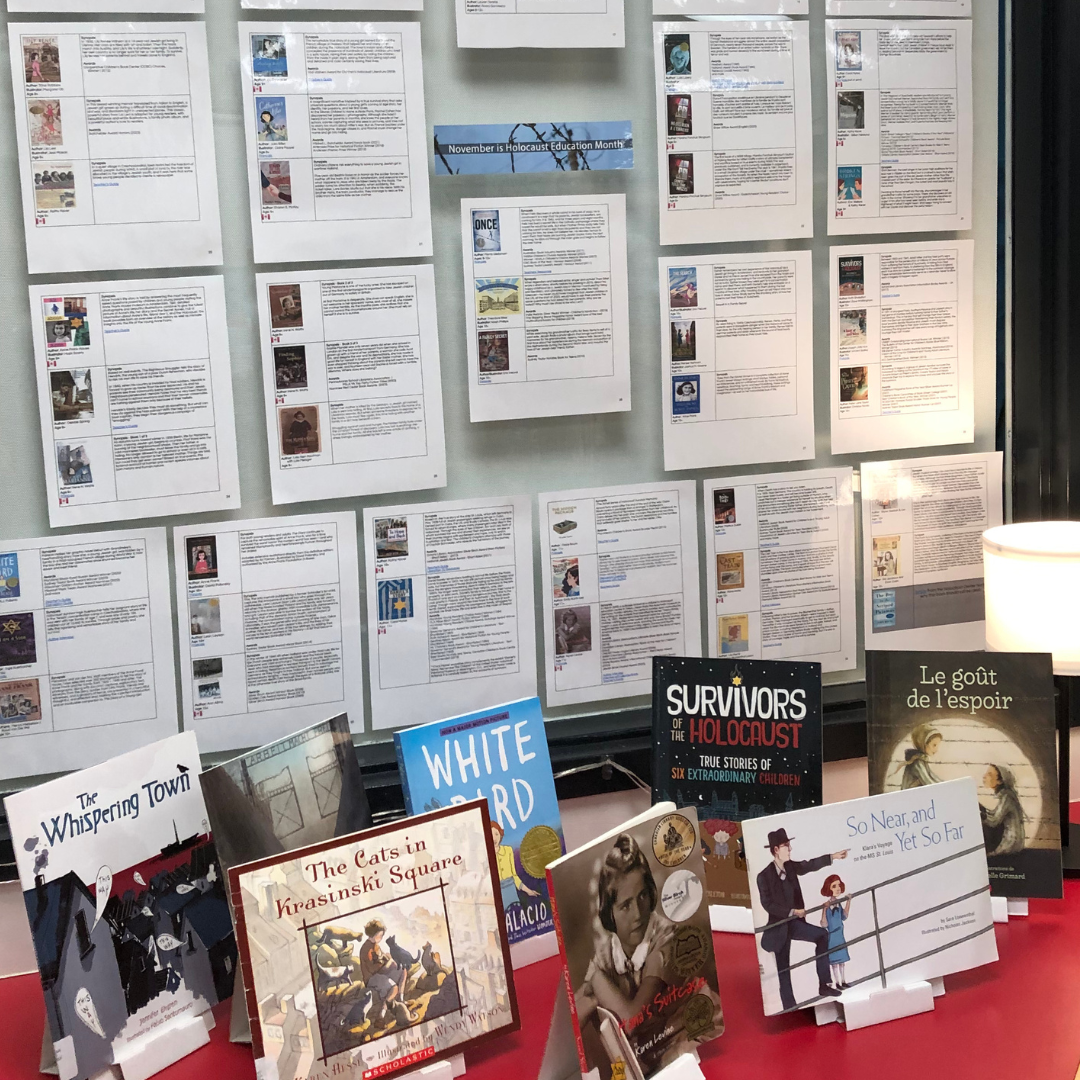
Brian Kom, Jewish Equity Instructional Coach for the Ottawa-Carleton District School Board (OCDSB), reflects on Holocaust Education Month and the meaningful work being done to educate students about the Holocaust.
While the journey toward creating a more inclusive and understanding learning environment for Jewish students is ongoing, significant progress has been made. As the Jewish Equity Instructional Coach, Brian Kom is deeply involved in fostering Holocaust education across the OCDSB. His role bridges education and advocacy, connecting students, staff, and community partners to opportunities for meaningful learning and reflection.
Kom’s perspective is a unique one. In his role, he not only promotes Holocaust education but also experiences its impact firsthand, in the classrooms where students are deeply engaged, in the hallways where projects come to life, and in the events where stories of survival are shared and remembered. Through collaboration with teachers, administrators, and dedicated working groups, Holocaust education takes on many forms, empowering students to explore its universal themes of resilience, empathy, and the consequences of hatred.
Here, in his own words, Kom shares some of the victories and initiatives witnessed across the District during this year’s Holocaust Education Month:

In the role of Jewish Equity Instructional Coach, I have the honour and opportunity to promote Holocaust education to staff and students throughout the Ottawa-Carleton District School Board. But even better, I have the unique privilege of getting to see it in action, first-hand, in schools, hallways, classrooms and student engagements across the District.
Holocaust education in OCDSB schools takes on countless forms: lessons implemented, announcements made, displays created, survivors invited, workshops and events hosted. Some of it takes place with my direct involvement; some takes place with some peripheral support; and some of it takes place entirely on a school and teacher’s own initiative. In every case, though, Holocaust education is ultimately made possible by the care and commitment shown by educators across the District in offering students opportunities to connect and engage with its universal and evergreen lessons and themes.
Though I can’t compile all of the teaching and learning that has happened at OCDSB schools around Holocaust education since taking on this role, I can share what I have personally supported, promoted, known and witnessed across the District during Holocaust Education Month this November. Dynamic, multi-faceted programming was made available and promoted throughout the Board, with the help and support of the Holocaust Education Working Group and valued community partners. The numbers below offer a glimpse of what Holocaust education has looked like at the OCDSB during this year’s Holocaust Education Month:
- 370 OCDSB students who participated in 13 combined trips to Holocaust education exhibits hosted at Ottawa Public Library branches. The exhibits “Stars Without A Heaven” and “How Was It Humanly Possible?” were curated by the Yad Vashem Centre for Holocaust Remembrance, and guided school visits were facilitated by the Jewish Federation of Ottawa.
- 15 schools that invited Dr. Eva Olsson, Holocaust survivor, to share her story with students. This marks the continuation of an incredible, decades-long engagement between the OCDSB and Dr. Olsson, for which generations of students and teachers have expressed appreciation and impact.
- 19 principals, vice-principals, and teachers who are members of OCDSB’s Holocaust Education Working Group. This group meets regularly, outside of school hours, to plan, implement and assess initiatives in support of Holocaust education throughout the OCDSB.
- 38 attendees at the “Teaching the Holocaust / Enseignante l'holocauste” after-hours Holocaust education workshop for OCDSB teachers, held at Manor Park Public School. The PD session, facilitated by the Holocaust Education Working Group, included sessions led by OCDSB educators, administrators and library technicians on teaching about the Holocaust through novel study, approaching the Holocaust en français, and engaging Holocaust education through age-appropriate texts. The PD doubled as an opportunity for staff throughout the OCDSB to network and collaborate with one another in working towards our shared educational goals.
- 6 members of the OCDSB’s Equity, Inclusion and Anti-Oppression team who attended Holocaust Education Month events, including teacher-led PD and multiple events hosted by the Centre for Holocaust Education and Scholarship.
- 48 class sets of the novel “To Hope and Back,” written by Kathy Kacer about the voyage of the MS St. Louis, distributed to 37 different OCDSB schools via Liberation75’s Ernie’s Books program. This number is in addition to the 13 class sets delivered to OCDSB schools last year and represents a three-fold increase in the number of classroomsparticipating this school year.
- 800-plus students at secondary school who engaged, all at once, and together, with Holocaust education. With voice and input from Jewish students, a learning and reflection activity was created and implemented simultaneously for the whole student population in their regular classrooms, with each teacher on staff leading the activity for their respective classes. This is one way the school implements Holocaust education and is part of an annual tradition of whole-school participation that ensures that every student has the opportunity to learn and engage.
Of course, now that Holocaust Education Month is over, that does not mean that the learning ought to end here. Plans are already in the works to host further educational opportunities to students inside OCDSB schools in the coming semester, as well as plans that extend to offering meaningful and engaging opportunities for Holocaust education next year. With further Holocaust touchpoints in January (International Holocaust Remembrance Day) and May (Yom HaShoah), the ultimate goal is for students to continue to have opportunities year-round to connect, build, and reflect on the key lessons of the Holocaust, from antisemitism, hatred, and prejudice to empathy, compassion, allyship and understanding.
- Brian Kom can be reached at [email protected].

